usd-2020-0048 | Gophish v0.10.1
Advisory ID: usd-2020-0048
CVE Number: CVE-2020-24708
Affected Product: Gophish
Affected Version: v0.10.1
Vulnerability Type: Stored Cross-Site Scripting
Security Risk: Medium
Vendor URL: https://getgophish.com/
Vendor Status: Fixed
Description
Gophish is vulnerable to stored self-XSS. In v0.10.1 Gophish introduced an impersonation button, which allows normal users to exploit administrative users.
The new sending profile form’s “Host“ input field is vulnerable to XSS. The payload executes when sending a test email. The XSS gets stored when saving the profile. A rogue user could exploit an admin by asking him to impersonate him and test his broken sending profile.
Proof of Concept (PoC)
The rogue user injects an XSS payload into a new Sending Profile (/sending_profiles). By saving the Sending Profile, also the injected XSS payload gets stored. The rogue user then requests assistance from an admin user to check out his ”broken” sending profile.
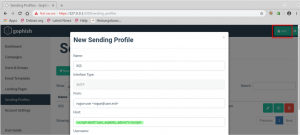
The admin user impersonates the user that he wants to assist
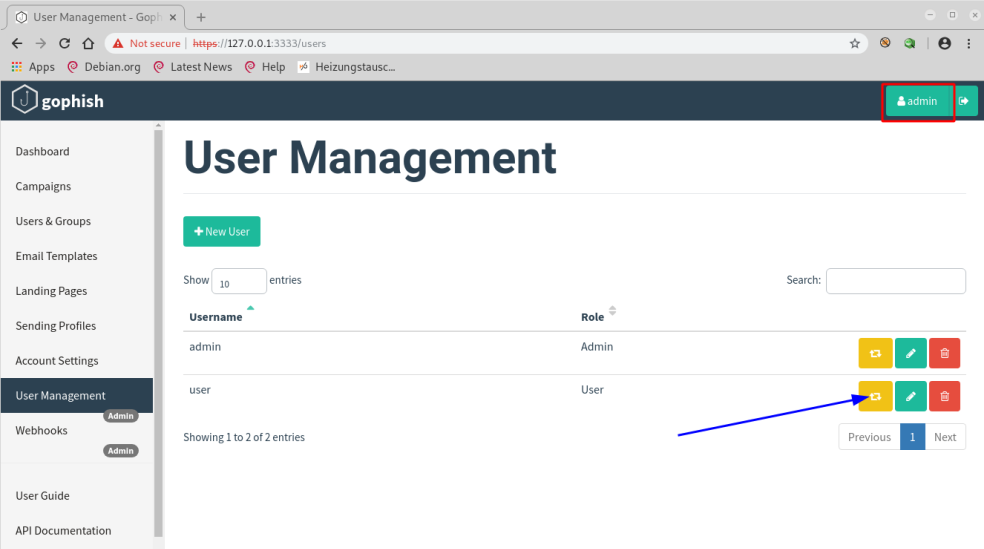
The admin user edits the user’s Sending Profile
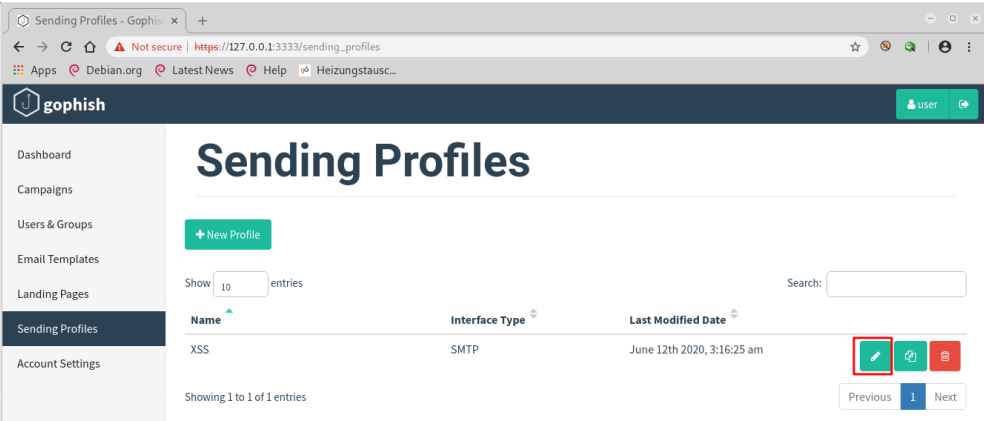
The admin user sends a test email
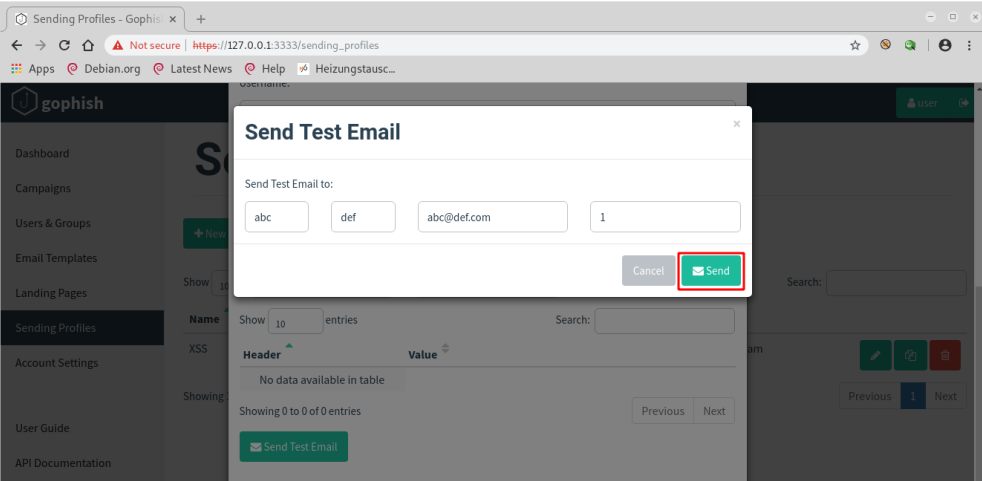
The XSS payload executes in the admin user’s browser
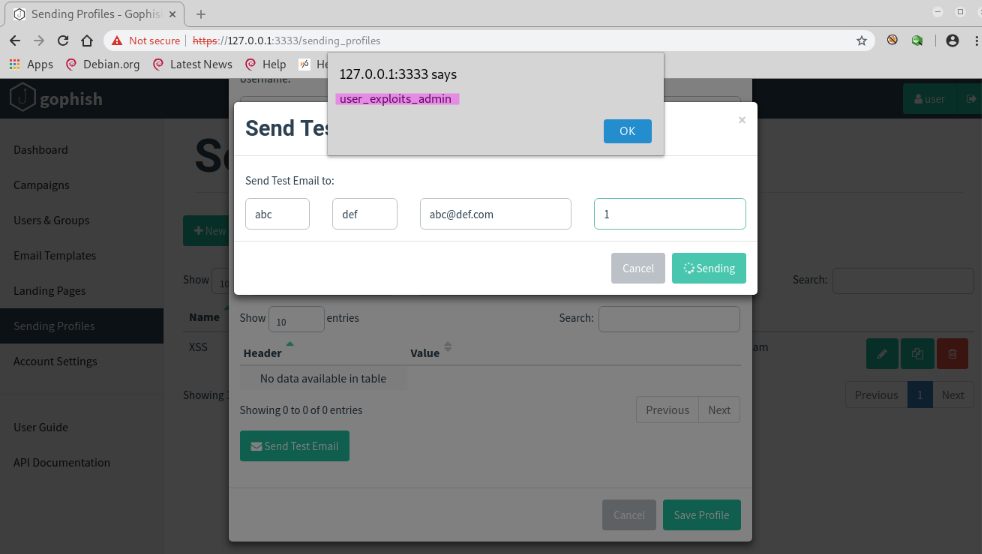
Fix
It is recommended to treat all input on the website as potentially dangerous. Hence, all output that is dynamically generated based on user-controlled data should be encoded according to its context. The majority of programming languages support standard procedures for encoding meta characters. For example, PHP has the built-in function htmlspecialchars().
Additionally, all input should be validated on the server-side. Where possible, whitelist filters should be used. The more restrictive a filter can be specified, the better the protection it provides. Whitelisting is especially recommended if input values have a well defined format or a list of valid input values exists. Invalid values should not be sanitized and forwarded to the application. Instead, requests with invalid values should be rejected.
Timeline
- 2020-06-18 First contact request via security@getgophish.com
- 2020-06-22 Vendor responds to initial contact
- 2020-08-07 Vendor publishes a fix on https://github.com/gophish/gophish/commit/90fed5a575628b89eaf941e1627b49e0f3693812
- 2020-09-29 Security advisory released
Credits
This security vulnerabilities were found by Marcus Nilsson of usd AG.